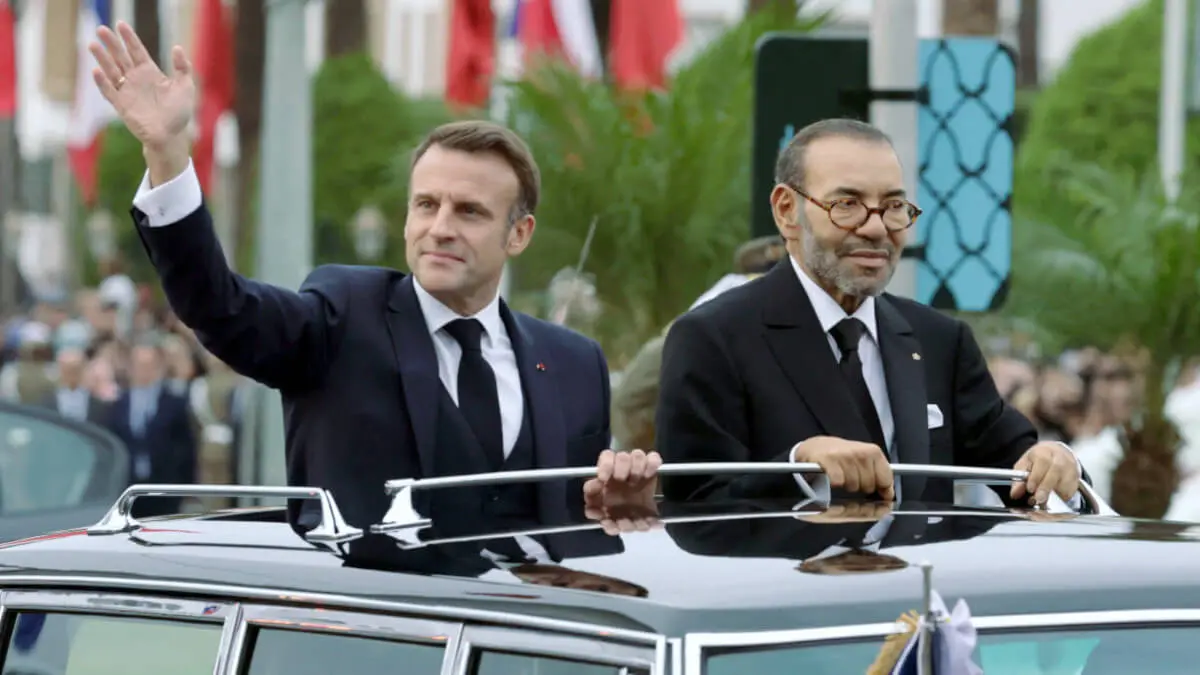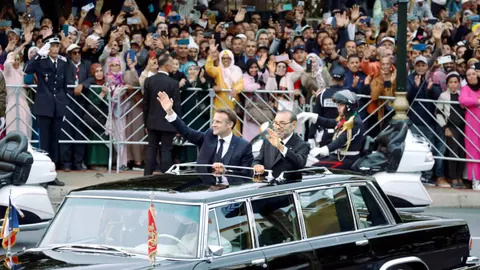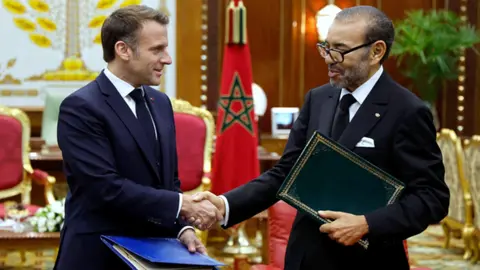Spain at the tail end of the Franco-Moroccan train

Not only do we not know how to take advantage of them, but we put them on a plate for our rivals and competitors. A few examples will suffice:
- While Spain and Ibero-America continue to engage in sterile debates about colonial history, about each other's faults, about the Hispanic legacy from Rio Grande to Cape Horn, other European countries are seizing the opportunity to launch themselves into the powerful emerging market in the American South.
For example, France, which in the last decade has launched 245 projects in Brazil, 192 in Mexico, 104 in Colombia, 62 in Argentina and 54 in Chile, all worth several tens of billions of euros. In Mexico, France has announced investments worth 3.35 billion dollars for the next five years, including 2.5 billion dollars for green hydrogen, 800 million dollars for the automotive company Valeo, and 50 million dollars for the pharmaceutical company Sanofi.
Britain is doing the same, and far from having tarnished its image in Latin America for having played a leading role in the only military confrontation in the Falklands war against Argentina's legitimate claim to recover its Atlantic archipelago, it is going to sign Preferential Trade Agreements with Mexico, Brazil and Colombia to circumvent the European restrictions that, after Brexit, no longer concern London. In 2023 Mexico and the UK signed a Strategic Partnership agreement that includes trade and investment cooperation. Powerful British groups are investing in innovative and sustainable technologies, renewable energy and agriculture. With countries such as Chile and Brazil, British companies are leading the way in installing solar and wind energy capacity.
If the loss of opportunities in Latin America is dismaying, in Morocco it is even worse. French president Enmanuel Macron's state visit to the Moroccan kingdom shows Spain's failure.
Pedro Sánchez's government, following in the footsteps - though not entirely - of the White House under Donald Trump (2017 to 2021), was the first in Europe to take the bull by the horns and implicitly recognise Moroccan sovereignty over Western Sahara by considering the autonomy proposal as ‘the most serious, realistic and credible’ to definitively resolve the conflict. At the time, France navigated in ambiguity without taking sides in the geopolitical rivalry between Algeria and Morocco.
But Spain was unable to seize the opportunity and set itself up as the main foreign investor in Morocco, taking the multi-million dollar contracts in railways, ports, road networks and renewable energies that were on the table in Morocco's foreign relations.
The Spanish government has not been able to carry out the University of the Two Kings in Tetouan, a flagship Spanish-Moroccan project for the training of senior officials. President Macron is planning to set up a polytechnic university in Morocco, linked to French universities.
The Spanish government has not had the audacity to set up an ICO (Official Credit Institute) office in any of the cities of the Sahara, while France has done so by installing an office of the French Development Agency (AFD) in Laayoune to support French investment in the Sahara.
Pedro Sánchez's government has not taken the step of opening a consular office in either Laayoune or Dakhla, while France is expected to do so these days in the former capital of the Spanish Sahara, and the United States has already announced that it will do so in Dakhla ‘after three years of preparation’. Spain's delay is bound to have negative repercussions on bilateral relations in several areas.
In the joint military exercises between Morocco and the United States, known as ‘African Lion’, which have been going on for 20 years, France has always been an observer in some cases, and directly involved in others. Spain, on the other hand, decided not to participate in the last four exercises, so that, despite the Spanish-Moroccan reconciliation, the Spanish arms industry is at the bottom of the list of international suppliers to the neighbouring southern kingdom.
Most analysts and observers of bilateral relations between Madrid and Rabat are in no doubt that the main obstacle and determining factor in this failure is to be found in Spain's own coalition government. As long as there are five openly anti-Moroccan ministers, in addition to Pedro Sánchez's parliamentary partners who are also supporters of the Polisario Front and openly hostile to the Alaouite monarchy, Spain will continue to miss opportunities. At best, Pedro Sánchez aspires to jump on the Franco-Moroccan bandwagon driven by Emmanuel Macron and Mohammed VI.



